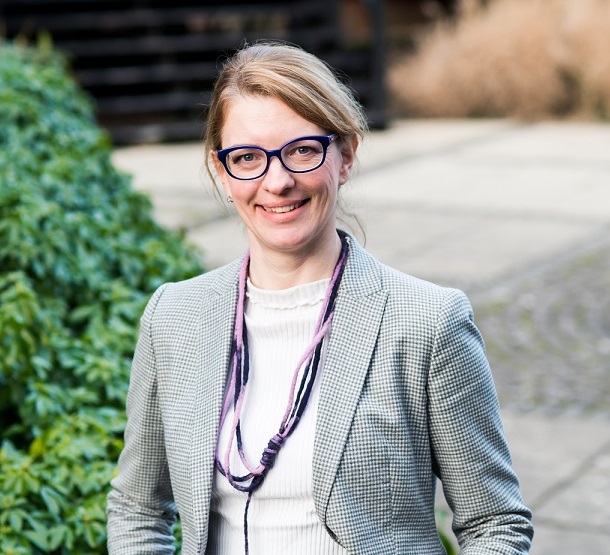- Could you tell us about EIRA, its projects and your role in this organisation?
The European Institute of Road Assessment is a not-for-profit institute based in Ljubljana (Slovenia) and is a subsidiary of EuroRAP. It is a relatively new institute, established in recent years and it is already leaving its footprints in road infrastructure safety in southeast Europe.
EIRA builds on the legacy of the previously implemented EuroRAP project SENSOR (2012-2014) co-funded by the South East Europe Transnational Cooperation Programme in which approximately 15.000 km of road networks in 14 countries of the SEE have been Star Rated for safety. SENSOR project showed the prominent urge to act upon major road safety concerns relieved after its implementation and in EIRA, we are inspired to create a positive environment for that change. Through a new project portfolio with forerunner project RADAR (co-funded by the Danube Transnational Programme) we are working for improved road safety, for maximising 3-star or better road networks in the region by transferring and piloting best-shown practices from countries with significantly better road safety tradition and results and propose solutions for improvement that fit to the individual countries concepts.
RADAR stands for Road Assessment on Danube Area Roads and involves 12 countries of the Danube region and 13 relevant stakeholders (relevant Ministries and Road Authorities) as Associated Strategic Partners, gathered together to work on the future Strategy for Infrastructure Road Safety Improvements and individual countries’ Action Plans. Among others, this Strategy, embraced by all the participating parties in RADAR, will be an important pathfinder for countries for the fully-fledged implementation of the revised EU Road Infrastructure Safety Directive 2019/1936.
In the brilliant EIRA team, my role is as a Project Director with the main responsibility of the successful implementation of road infrastructure safety projects in the SEE region and delivery of results.
- What is your impact as a woman in projects such as RADAR?
From the early days in the project, we have committed to demonstrating as much as possible that women are not only actively present in Road Safety but also are significantly contributing to its improvements. The exclusive promotion of the project by women working in RADAR was our first step in that direction that, so far, has been implemented in most of the cases. Surprisingly enough, this strategy has triggered attention and comments in many cases, so we believe we have hit (at least somewhere) near the target to show that women are present and should be here, and it needs to be discussed. There is so much that women can bring to the party in the Transport Sector.
On the bright side, there are so many respectful, great female experts in Road Safety in Europe and there should and could be more in the future. Even in the EU, from 1958 to 1999 the positions of Transport Commissioners seemed to be saved for men until Loyola de Palacio (in position 1999-2004) broke the ice. It should be an encouragement to all of us, women in Road Safety and Transport, that current DG MOVE Commissioner Ms. Adina Ioana Vălean, as well as her predecessor, Ms. Violeta Bulc, are women acknowledged as leaders capable of leading in Transport.
- You are providing training courses in the Danube region (South East European countries) for road safety professionals. Is there a good quota of women represented?
We have performed training in 7 countries so far – Slovenia, Croatia, Austria, Hungary, Bulgaria, Bosnia and Herzegovina and Montenegro, and women were not more than 20% of the participants. It still feels it is a male word and we need a change.
- What are your main successes and achievements?
The main success and achievement are to see my team happy, healthy and motivated to change the world.
It is also rewarding to see, in the perspective, how a small step or a difficult win at one point of time, can bring the desired change in the future.
In road safety, it is important to understand that very difficult work needs to be done and results may be visible only years after, even though we would want to see them immediately. You need to keep going.
To cite one of my favourite notes from Tagore: “The one who plants trees, knowing that he will never sit in their shade, has at least started to understand the meaning of life.” We need to leave safer roads for future generations.
- What are the career challenges you face?
The main challenge is to balance work-life balance when working in the transnational context and travel a lot for business. There, the team is that matters! We, in EIRA, are always trying to support each other in supporting healthy work-life balance and have managed in most of the cases so far.
In the same context, it is difficult to systematically focus on your skills improvement and building of new skills, unless it is on the go.
- What could we offer as EuroRAP to promote women in this predominantly male sector?
As EuroRAP, we need to fully understand how women benefit Road Safety and become pioneers in the promotion of new and innovative ideas in that respect. EuroRAP needs to inspire positive change and bring women in front. With Lina Konstantinopoulou’s appointment as the first woman Secretary-General of the organisation, reinforcement of woman involvement is a great step toward the goal.
We need to strive not only for balance and equality in general but, much more, for man=women balance and equality in leadership and decision-making positions and opportunities.
- Could you share a 6-word story about what EuroRAP is or has done for you?
In a men’s world, a woman can make a big change in eliminating high-risk roads: empower!


















